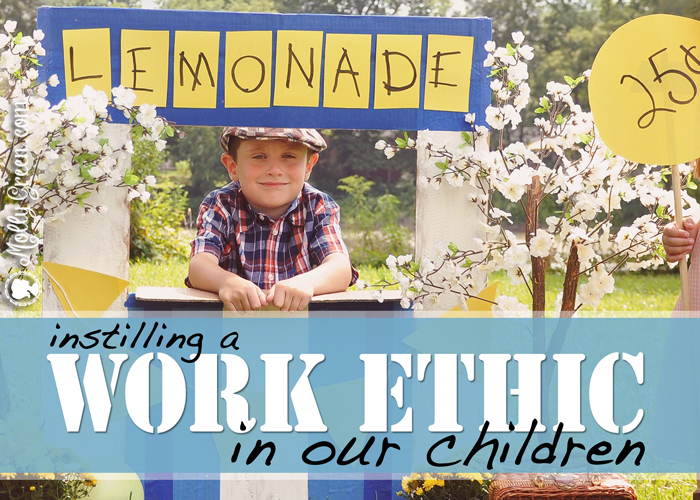By Stephanie Oaks
For many of us, the term “child labor” brings about negative thoughts of children forced into long days of labor in sweatshops—often at the expense of their health, safety, and education. Sadly, much of this still exists in parts of the world today, something that ultimately can only be changed by our choices in what we buy. But that is a subject for another place and another day. Today I want to speak to the labor of our own children in our own home businesses.
When people ask about our farm and how the operations are going, I am quick to say that our kids are a big help. There is usually an element of surprise in their response. Questions follow like, “Really?” “Do they enjoy working on the farm?” “You make them get up at 6:00 o’clock in the morning?” “Do they complain a lot about having to work?” My answer to these questions is different than it was at the beginning.
Since the beginning of this project, since the day that we started pulling trees by hand out of the forest that would one day be the field where others would come to pick berries and vegetables, this has been a family effort. The kids dove right in, always at our side. The things that we had hoped for, like spontaneous conversations amidst the work and learned skills that they could take with them, were indeed happening, but the work ethic that we longed to see in our children was not there. We quickly saw that this was something that we would have to teach them.
It has been an intentional process as we instill a strong work ethic in them, a process that is still ongoing. There are a few aspects of this process that I would like to share with you.
1. God’s view of work. Our breakfast conversations quickly turned to God’s view of work. Throughout the Bible, God speaks of “working diligently as unto the Lord,” being cheerful and joyful in all that we do, and avoiding idleness. Paul speaks much of this in Thessalonians, giving them a rule that “If a man will not work, he shall not eat.” In my Bible, the commentary on this verse states, “The Christian must not be a loafer.” We chose not to threaten our children with not feeding them (insert winky face), but the point was well made. These themes are talked about in all areas of our lives, chores in the house, our work in homeschooling, time spent doing things for others, and our work on the farm. We also have to make sure that we are setting a good example in our own attitudes toward our work! This is a continual conversation at our house—we all need the reminders.
2. Comparing our lives to others. In many ways our family life looks much different from those of other families. Many of our kids’ friends do not have regular chores that they are responsible for, let alone having to work in their family’s home business. (There are a number of families in our community that do, however, and we often look to them as examples.) Many of our kids’ friends have much more free time than they do; something that they often long for. We do give our kids free time to explore their own interests (and to have some time of rest), and some seasons allow for more of that than others. But we also try to instill in them that the reason God calls us not to be idle is for our own good! The Bible speaks often of idleness leading to sin and ruin. Especially in young people, those idle times can allow them to get into things they normally would not. We are created to be doers—we will find something to do, good or bad. Idleness is also a habit that can be carried into adulthood. For these reasons, we try to instill in them an appreciation for our way of life and a sense of how much more ahead they are in life than those who have not learned to work hard.
3. Realistic Expectations. While we do expect much from our children, we cannot expect them to share our passions and abilities. We need to keep realistic expectations of our children’s abilities and stamina if we want to keep them joyful in their work. Finding a realistic balance between work life and family life can do much for family harmony.
We still have much to do in our household to prepare our children for life in the “real” world, but we feel that they are on their way because of their experiences working with us on the farm.
Stephanie Oaks lives just outside of Nashville with her husband and two teenagers. She spends her days homeschooling, running and maintaining No. 9 Farms, growing and preserving food, and educating others about organic gardening and eating well. You can check out their farm on Facebook under No.9 Farms.





